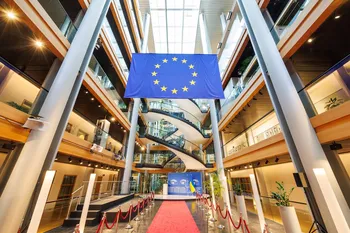 In the last plenary session, the European Parliament endorsed, with 565 votes in favour, 15 against and 24 abstentions, the EU Council position on a second draft amending the 2022 EU budget. The surplus resulting from the implementation of the 2021 budget totalling 3.227 billion euros is entering as revenue in the 2022 EU budget, but this will not bring additional resources for the Union.
In the last plenary session, the European Parliament endorsed, with 565 votes in favour, 15 against and 24 abstentions, the EU Council position on a second draft amending the 2022 EU budget. The surplus resulting from the implementation of the 2021 budget totalling 3.227 billion euros is entering as revenue in the 2022 EU budget, but this will not bring additional resources for the Union.
The EU co-legislators remarked that the EU budget surplus in 2021 was "especially high" if compared with the previous years' ones, as it amounted to 1.768 billion euros in 2020, 3.218 billion in 2019 and 1.803 billion in 2018. This was due mostly to higher-than-expected revenues from customs duties, which accounted for over 2.5 billion euro, presumably because of more intense trade flows compared to those recorded in 2020, which was a year affected by the Covid-19 outbreak. The revenue from EU competition law fines, default interest, and other penalty payments was also higher than forecast in 2021 (by 957 million euros).
This level of surplus also resulted from under-implementation of expenditure in the EU budget of 652 million euros (121 million in 2020 and 803 million in 2019). Budget implementation by the Commission reached 99.95 % of authorised payment appropriations, the draft shows. The amount not implemented was 81 million euros in voted appropriations, and 250 million euros in appropriations carried over from 2020. In the approved resolution, members of the EU hemicycle deplore that 183 million euros related to the Emergency Support Instrument, devoted to the purchase of vaccine doses for low-income countries has not been spent or even or redirected to other needs. In a meeting of the European Parliament Committee on budget affairs, the European Commission assured that these funds were not disbursed because of a difficult reconciliation between a crisis instrument and the annuality of the budget. Under-implementation by the other EU institutions totalled 117 million euros, and cancellation of appropriations 77 million euros.
Co-legislators challenge that the surplus cannot be immediately available to address other needs, like, for example, by providing “the strongest possible economic and financial support to Ukraine and frontline countries and to further strengthen the Union’s solidarity capacities to address the social, energy, agricultural and economic consequences for the Union and its citizens of the Russian war in Ukraine”. This surplus will instead result in decreased Gross National Income-based contributions from Member States for the next financial year. This problem extends to the use of competition fines, which do not create additional EU spending capacities but lead to a reduction in EU states contributions.








